When it comes to vegan staples, it can be confusing to know the difference between tempeh vs tofu. Which is best? Which is healthier? What are they made of? Breaking it all down here!
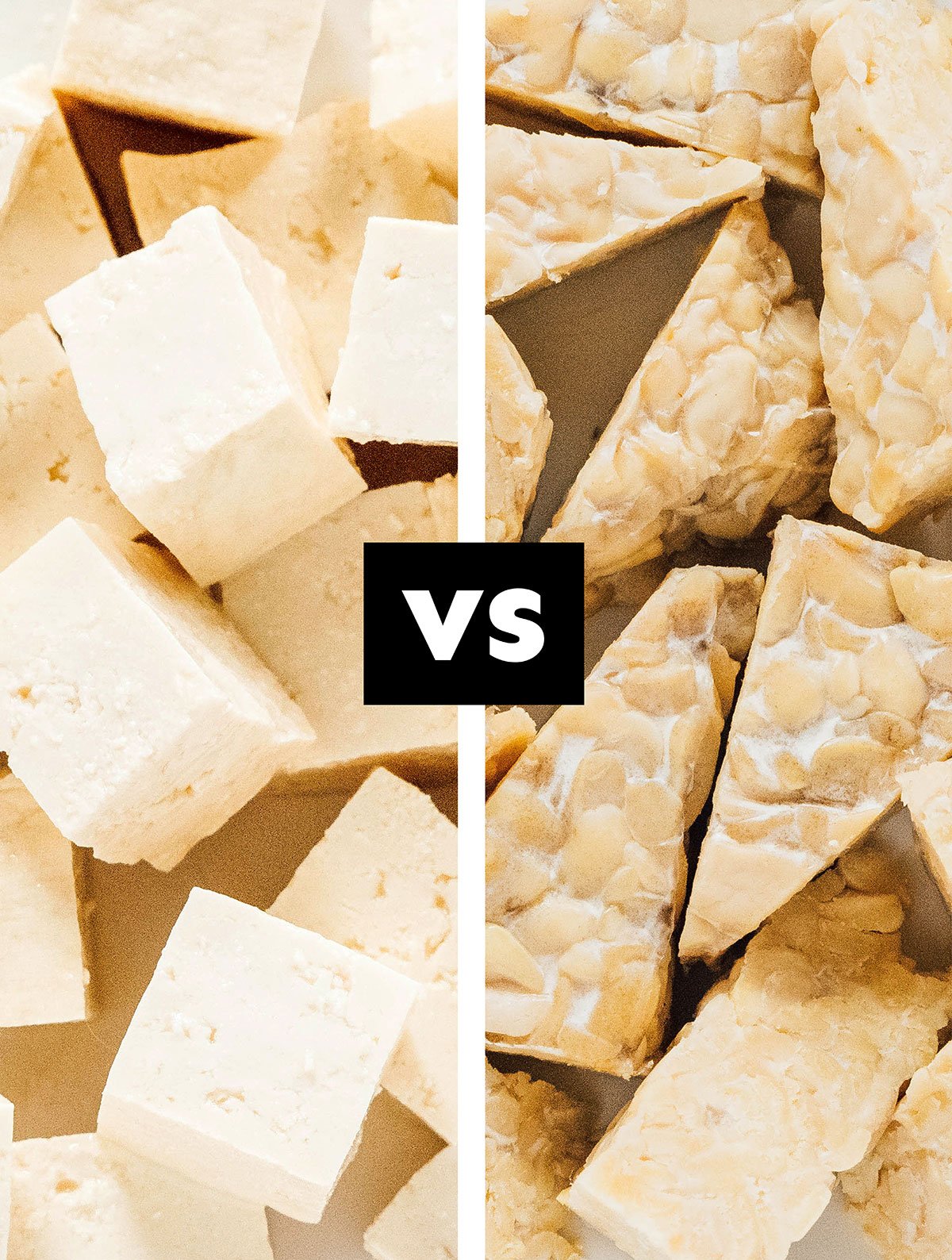
Tempeh and tofu are both popular plant-based protein sources, but they have some distinct differences in terms of taste, texture, and nutritional profile.
Tempeh vs Tofu: How They’re Made
The major difference between tempeh and tofu is in how they’re made.
Tempeh is a traditional Indonesian food made from fermented soybeans. The soybeans are first cooked, then mixed with a starter culture, and then formed into a dense, cake-like patty. Tempeh has a nutty, earthy flavor and a firm, chewy texture. Because it is fermented, tempeh is also a good source of probiotics, which can help promote a healthy gut microbiome.
Tofu, on the other hand, is made from soy milk that is curdled and pressed into blocks. It is often referred to as “bean curd” and it has a very mild flavor and a soft, spongy texture. Tofu is a good source of protein and is often used as a meat substitute in vegetarian and vegan dishes.
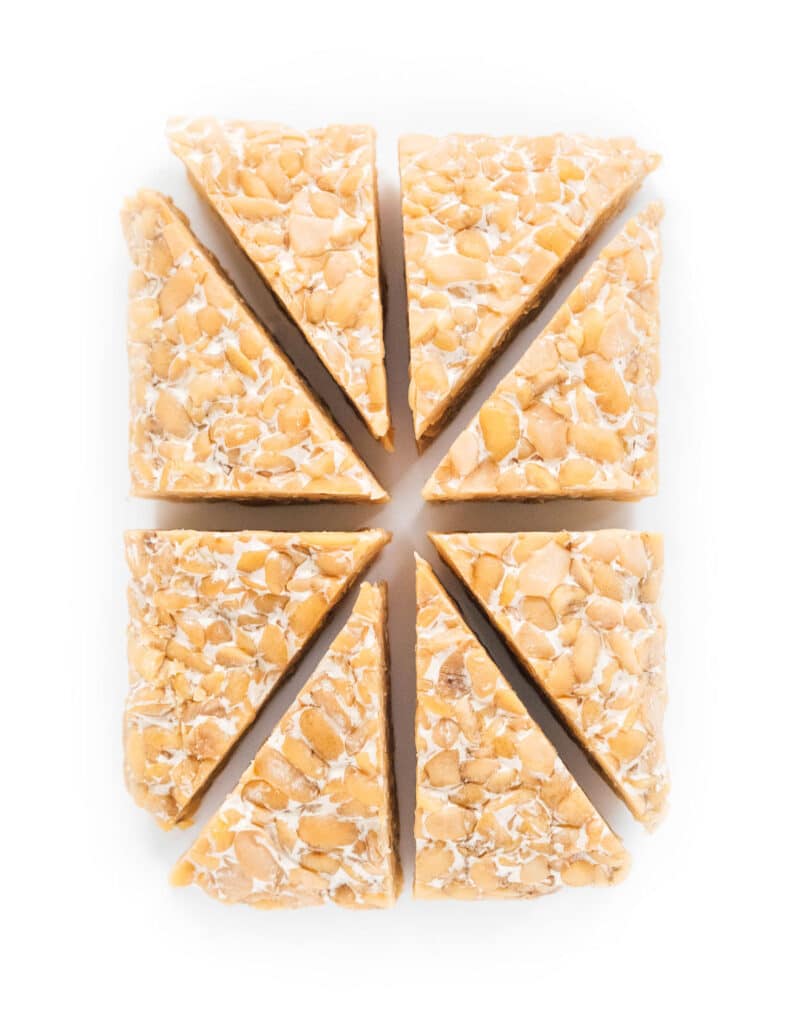
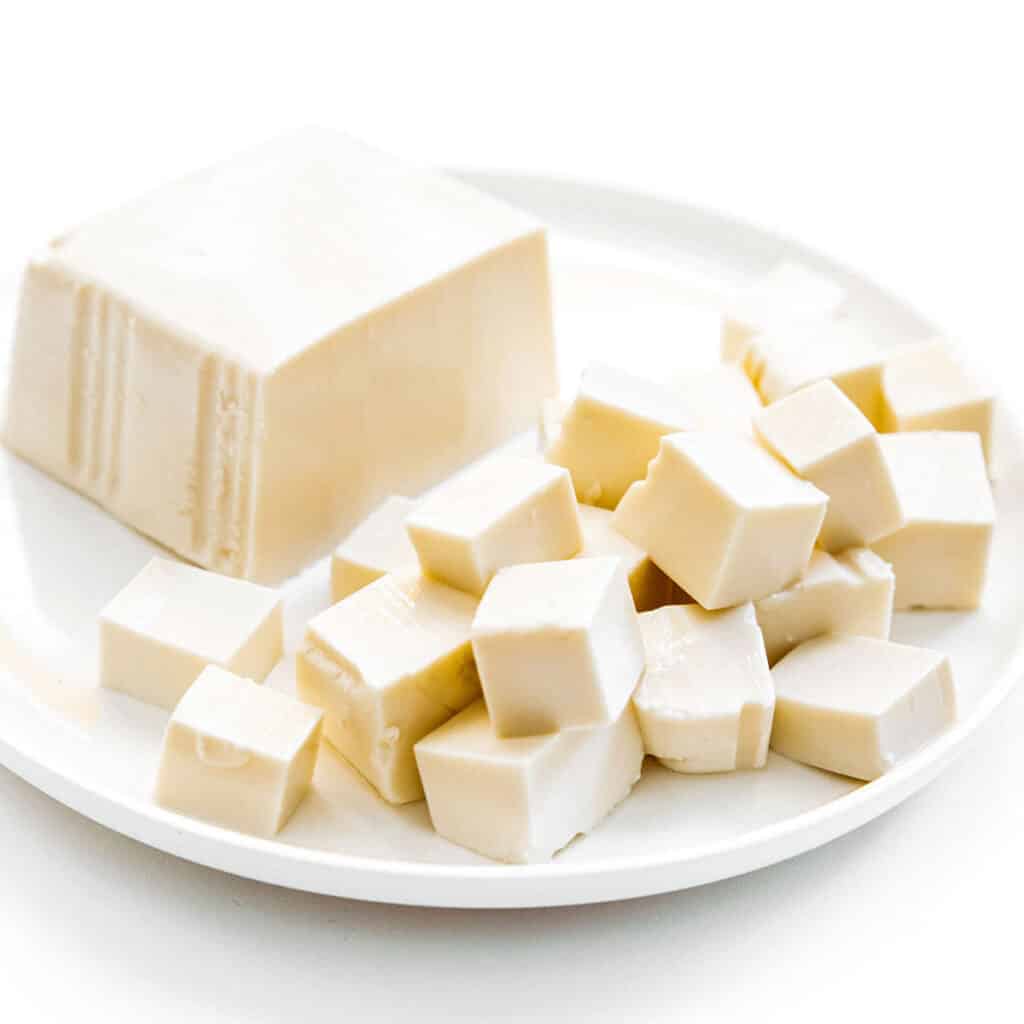
Tempeh vs Tofu: Nutrition
In terms of nutritional differences, tempeh is generally considered to be a healthier choice than tofu because it is richer in vitamins and minerals, although tofu has less calories.
According to the USDA, a 100-gram serving of cooked tempeh provides 196 calories, 18 grams of protein, 11 grams of fat, and 9 grams of carbohydrates. In comparison, the same serving size of cooked tofu contains 70 calories, 8 grams of protein, 4 grams of fat, and 2 grams of carbohydrates. Tempeh contains higher amounts of fiber, iron, calcium, and potassium than tofu, while tofu has more magnesium and vitamin K. The following chart from the USDA shows a side-by-side comparison of the two:
| Nutrient | Tempeh (100g) | Tofu (100g) |
|---|---|---|
| Calories | 196 | 70 |
| Protein | 18 g | 8 g |
| Fat | 11 g | 4 g |
| Carbohydrates | 9 g | 2 g |
| Fiber | 5 g | 0.5 g |
| Iron | 2.7 mg | 1.8 mg |
| Calcium | 111 mg | 138 mg |
| Potassium | 386 mg | 121 mg |
| Magnesium | 97 mg | 33 mg |
| Vitamin K | 0.5 mcg | 0.2 mcg |
It is important to note that both tempeh and tofu are excellent sources of plant-based protein, and can be part of a healthy and balanced diet. The USDA recommends consuming a variety of protein sources, including plant-based options, for optimal health.

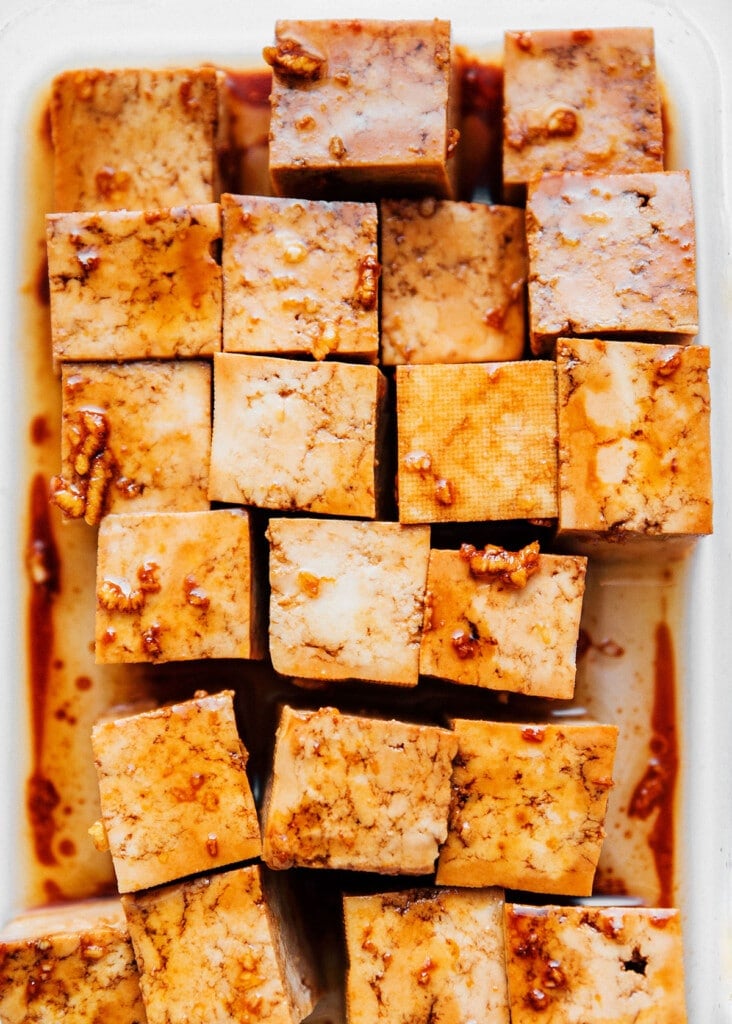
Tempeh vs Tofu: Taste & Texture
Tempeh and tofu have different taste and texture profiles, which make them suited for different types of vegetarian recipes.

Tempeh has a slightly nutty and earthy flavor, and a firm, chewy texture. This is due to the fermentation process that it undergoes, which gives it a slightly sour taste and creates a dense, compact texture. Tempeh’s texture also makes it a great meat substitute, as it can hold its shape and add a satisfying chewiness to dishes.
Some of our favorite tempeh recipes are:
- Tempeh Bacon for a vegan breakfast
- Tempeh Taco Meat, one of my all-time favorites
- White Bean Chili, a probiotic powerhouse meal

Tofu, on the other hand, has a more neutral flavor, and a soft, silky texture. It can take on the flavor of whatever it is cooked with, making it a versatile ingredient in a wide range of dishes. Tofu comes in various textures, from soft and silken to firm and extra firm, depending on how it is processed. Soft tofu is often used in desserts or blended into smoothies, while firm tofu can be sliced, diced, or crumbled for use in savory dishes like stir-fries, curries, and soups.
Some of our favorite tofu recipes are:
- Tofu Nuggets, a crunchy comfort food
- PF Chang’s Copycat Lettuce Wraps, a healthy appetizer everyone will love
- Tofu Frappuccino, a tasty mocha frap with a secret ingredient
Ultimately, the taste and texture differences between tempeh and tofu make them suitable for different culinary applications. Tempeh’s nutty and chewy texture is perfect for dishes that require a meaty or substantial texture, while tofu’s mild flavor and soft texture make it a versatile ingredient that can be used in a variety of dishes.


Which is best, tempeh or tofu?
Both tempeh and tofu are excellent sources of plant-based protein, and they offer different nutritional and taste benefits! Depending on personal preferences and dietary needs, either tempeh or tofu can be a great addition to a healthy and balanced diet.
Some people may prefer the nutty flavor and chewy texture of tempeh, while others may prefer the versatility and soft texture of tofu. Ultimately, the choice between tempeh and tofu comes down to individual taste, cooking style, and nutritional goals. It’s always a good idea to experiment with both and see which one works best for you!
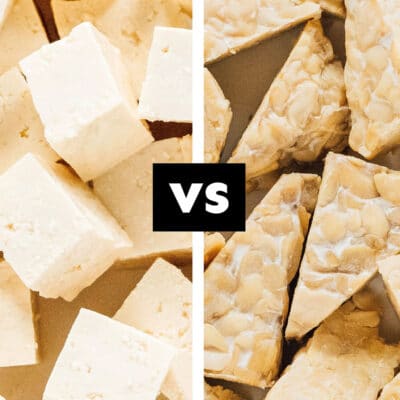
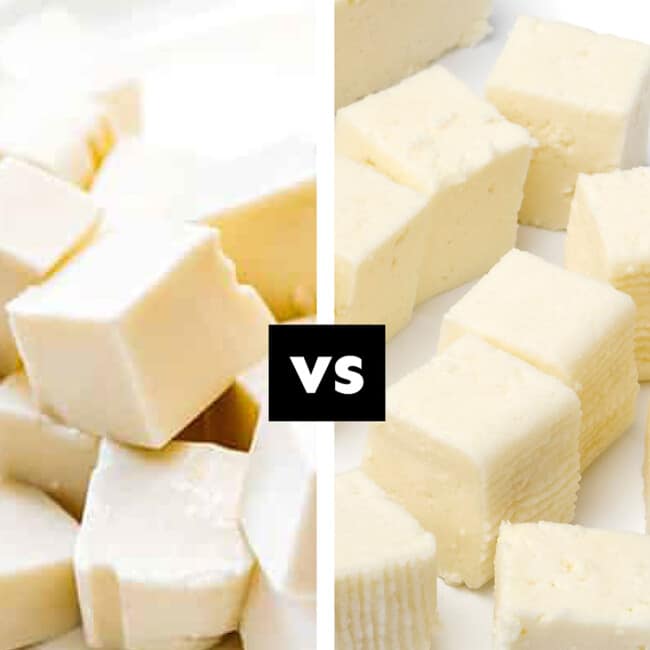

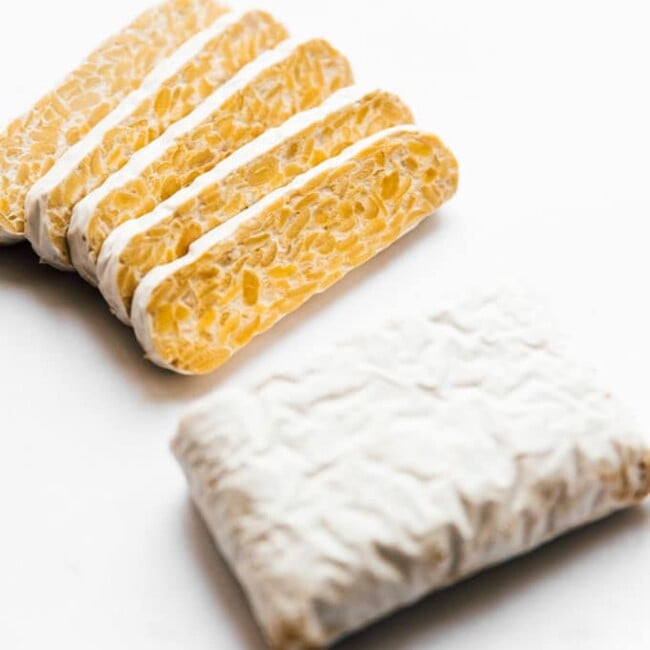
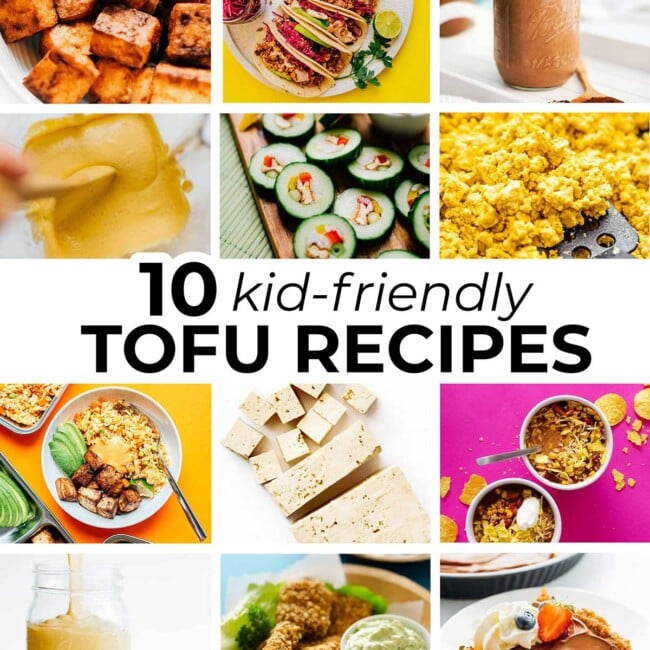
Leave a Comment